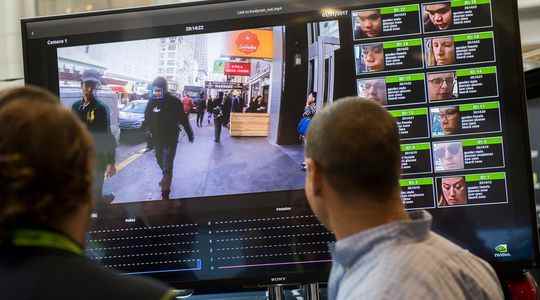YES / “We could strengthen our effectiveness against banding phenomena”
By Christian Estrosi, mayor of Nice and former minister.
In our daily life, facial recognition is everywhere. Everywhere, except perhaps where it would be really useful to us. When several times a day we unlock our smartphone, we use facial recognition without anyone taking offense.
For several years, our societies have been confronted with more and more violent acts of delinquency, orchestrated by better organized gangs. Faced with this reality, public authorities and industrialists have innovated and invested in developing tools to stem this outbreak of violence.
With facial recognition, we could thus reinforce our effectiveness against the phenomena of gangs, hooliganism as we all saw at the Stade de France a few days ago, terrorism or even violent men who prowl around the home of their ex-partner.
Often fantasized and caricatured, this technology, the use of which needs to be framed by precise laws and rules to avoid the excesses of authoritarian countries, constitutes a small revolution in the policies of public peace and security. It would, for example, make it possible to instantly detect and then quickly arrest a hooligan banned from a stadium near a sports arena on match day. It is now the ideal tool for remaking football into a great popular and family celebration.
Far from the caricatures of those who castigate it by summoning the literary talent of an Orwell and who are the same people who, twenty years ago, were against CCTV cameras but who are calling for them today, this technology requires a serious debate. and measured. A debate today confiscated by the Cnil and its dogmas from another age. The safety of our fellow citizens deserves that we mobilize all the technological means at our disposal to recreate the link and appease a society that needs it.
NO / “It would give the government full power of control”
By Martin Drago, jurist, former member of La Quadrature du Net.
Facial recognition is already present in France – whether near stadiums or on the rest of the public highway. The police use it daily to identify the millions of people registered in the criminal record processing file. A Senate report indicates that in 2021 this device was used 615,000 times, or more than 1,600 times a day. In addition to the Parafe gantries in airports, several experiments have also been carried out, the last known at Roland-Garros in 2020.
It is therefore no longer a question for the authorities of authorizing facial recognition or not, but of extending its use by giving the police access to new biometric files. However, this mass surveillance tool constitutes a disproportionate attack on our freedoms which makes it illegal.
No argument can justify its use. Facilitating the deployment of facial recognition means putting in the hands of the government an invisible, permanent and generalized weapon of identification of its population. It is to give him a power of total control which he can only be tempted to abuse.
There is no facial recognition more acceptable than another. To authenticate the person holding a ticket near a stadium or political opponents in a demonstration, it is the same algorithm, developed by the same companies. Each use contributes to the trivialization of this technology, the deployment of which was still unthinkable a few years ago.
The rhetoric used around the stadiums is only a repetition of a false debate imposed by certain public decision-makers. It wants to make inevitable a device whose use should on the contrary be sanctioned.
